Old mines and abandoned buildings, towns that were once full of life, where people did everyday things turned into a desolate, empty shell. Disaster strikes in many ways, such as environmental, economic, and natural. Across the globe, there are hundreds of ghost towns and deserted residential places which were abandoned due to catastrophes.
Prypiat, Ukraine
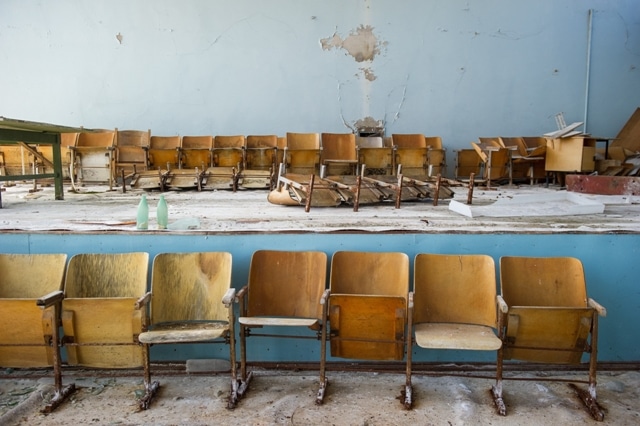
On April 26 in 1986 the worst nuclear accident of the history happened when reactor 4 exploded at Chernobyl Nuclear Power Plant. Four workers were killed instantly. Steam explosions and fires released about 5% of the radioactive reactor core into the atmosphere. The nuclear meltdown blew downwind on cities and even into different countries.
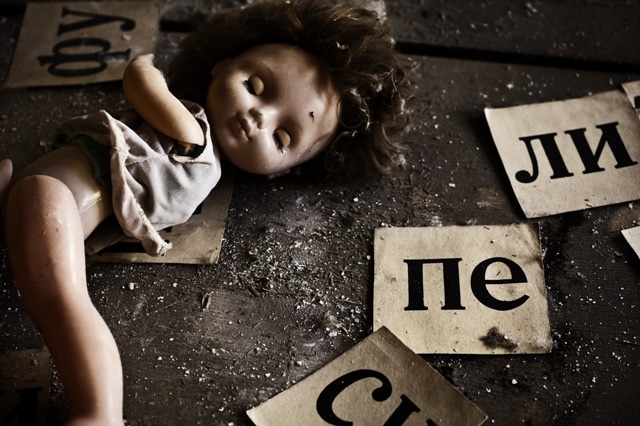
The nearby city of Prypiat – founded in 1970 – in Ukraine, was home to the workers of Chernobyl Nuclear Power Plant. The city is now one of the world’s most notorious modern ghost towns.
The Chernobyl explosion happened at around one in the morning when most of the 50,000 people in Prypiat were sleeping. 40 hours later, residents were ordered to evacuate. People had to leave their homes so to never return back. Evacuation of the population lasted 3 hours. By then, many of the people had suffered from radiation poisoning.

Prypiat had one hospital, three clinics, 21 schools, three cultural centres, ten gyms, ten shooting galleries, three indoor pools, and one railway station. It also had one recreation park, 35 playgrounds, 25 malls and stores, and 27 cafes. But in a blink, the people of Prypiat disappeared. Prypiat is still mostly abandoned. The area is considered relatively safe today, and several Ukrainian companies even offer tours it is not advocate entering the city.
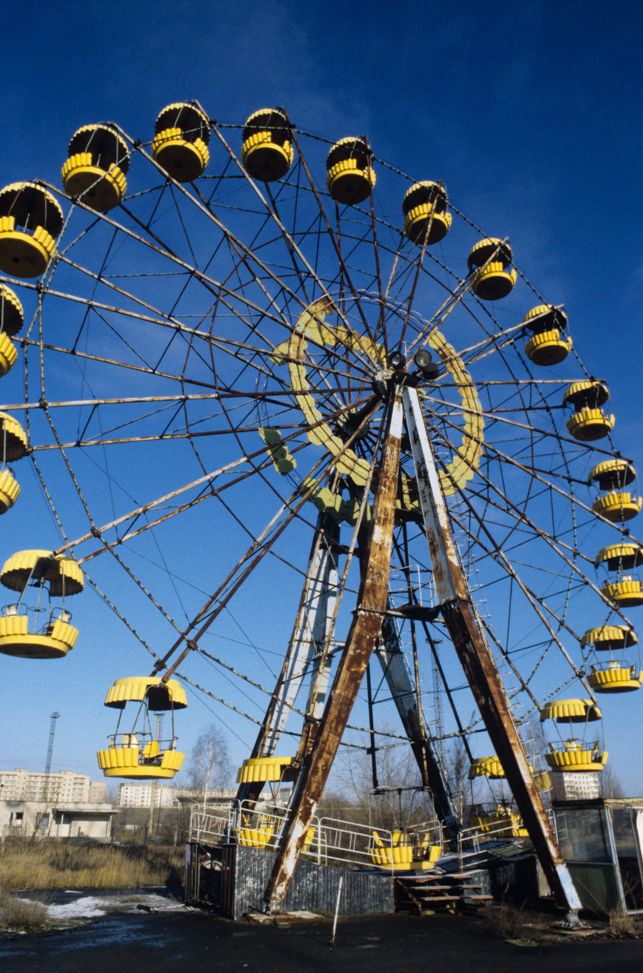
mine – bánya
abandoned – elhagyatott
desolate – lakatlan, sivár
to strike – lecsapni
instantly – azonnal
core – valaminek a magja/közepe
meltdown – összeomlás
downwind – hátszél, uralkodó széljárás
notorious – hírhedt
to be ordered to – valamire parancsot kapni
to suffer – szenvedni
in a blink – egy szempillantás alatt
to be considered – valamit valaminek tartanak
advocate – javasolt, támogatott
Poveglia Island, Italy

Poveglia Island is one of many island in the lagoons of Venice. This island is not only regarded as one of the most haunted locations on the planet, but also one of the most evil places in the world. Today it is off-limits to visitors and even fishermen steer clear of the island for fear that they will catch human bones in their nets.
The dark history of the island started in 1348, when the Bubonic Plague arrived in Venice and Poveglia became a quarantine colony. Fearing the spread of the disease, Venice exiled many of its symptom-bearing citizens there. At the island’s centre the dead and those too sick to protest were burned on giant pyres. These fires would burn once more in 1630 when the Black Death again swept through the city.
In the late 1800s, the area’s mentally ill resided in an poorly constructed asylum in Poveglia. There are rumours that in the 1930s, a doctor performed strange experiments on the patients here. Eventually, the doctor went mad and threw himself from the asylum’s tall bell tower. Though the bell in the tower was removed decades ago, locals still claim to hear it from the lonely island. By the mid-20th century, the facility was converted into a geriatric centre, which closed in 1975.
Today, the entire island is abandoned. In recent years, Italian construction crews attempted to restore the former hospital building, but abruptly stopped without explanation, leaving locals to speculate that they were driven away by the island’s dark forces.
not only … but also … – nem csak … hanem … is
haunted – szellemjárta
to steer clear (of) – elkerülni valamit
Bubonic Plague – bubópestis
quarantine – karantén
to spread – terjedni
disease – betegség
to exile -száműzni
sympom-bearing – tünethordozó
pyre – (halotti) máglya
mentally ill – szellemileg beteg, elmebeteg
to reside – tartózkodni/lakni valahol
asylum – elmegyógyintézet
rumour – pletyka, szóbeszéd
to perform an experiment on – kísérletet végrehajtani
bell tower – harangtorony
to be removed – eltávolítva lenni
to be converted into – valamivé átalakítva lenni
geriatric centre – gerontológia, elfekvő
to attempt to – kísérletet tenni valamire
to restore – helyreállítani
abruptly – hirtelen
without explanation – magyarázat nélkül
Bodie, California
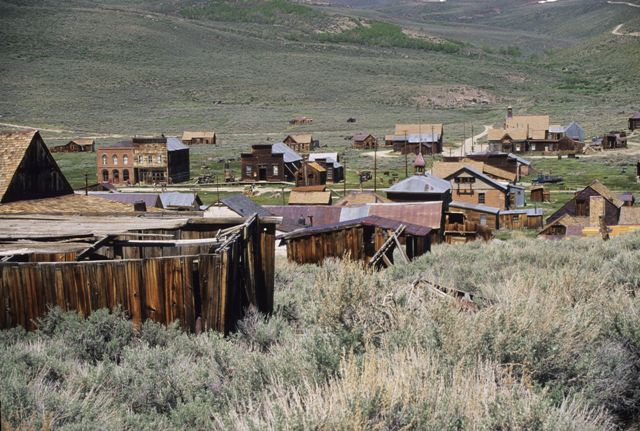
The US has an abundance of ghost towns, mainly old mining towns that dried up after the gold rush. Here are two of them!
The ghost town of Bodie, California, is one of the most authentic abandoned gold-mining towns of the Old West. It sits not too far from the Sierra Nevada Mountains. It rises out of the sparse landscape and gives a mirage effect. Now owned by the state and made into a historic park, this town has about 170 buildings still standing.

The town was founded in 1859 by W.S. Body, who was making his way with others further into California to mine for gold. What he and others found was the one of the richest gold discoveries the West has ever known, according to the California Parks Department. Eventually the town would produce $32million dollars in gold and around $7million in silver.
Body never got to luxuriate in his discovery as he froze to death his first winter, while out getting supplies. Mining started slow, but in 1875 miners made a huge discover after a cave-in. Mining reached its heyday from 1877 to 1881 as the town’s population grew to a massive 10,000. Sixty saloons and dance halls were built up and the town became known as the most lawless, wildest and toughest mining camp the far west has ever known.
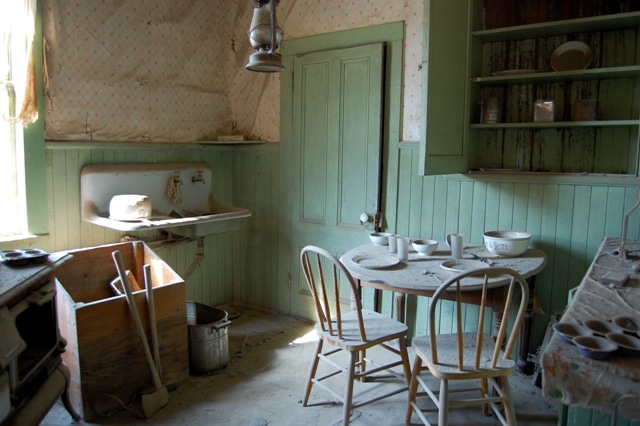
It was also very dangerous with killings happened in the streets often. But then mining slowed in 1881 and the miners moved on. In 1892 a deadly fire swept the town, destroying many homes and buildings.
The nail in the coffin came in 1932 when a 2-year-old lit a match that started another fire which destroyed all but 5-10 per cent of the town. Bodie was over.
The town was turned into a State Historic Park in 1962, and tourists can visit the abandoned town year-round.
abundance – bőség
to dry up – kiszáradni, elapadni
gold rush – aranyláz
authentic – eredeti, autentikus
to rise out – kiemelkedni
sparse – gyér
landscape – táj, vidék
mirage effect – délibáb hatású
to freeze to death – halálra fagyni
cave-in – beomlás
heyday – virágkor
lawless – törvény nélküli, törvényen kívüli
nail in the coffin – utolsó szög a koporsóban
Centralia, Pennsylvania
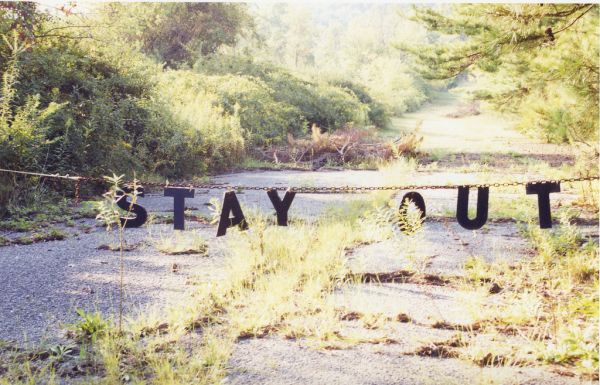
Unlike Bodie, Centralia wasn’t abandoned directly after the Gold Rush. Its ghost town status was caused by an underground mining fire in 1962 that forced its residents to evacuate. The fire is still burning today and experts predict that it could continue to burn for close to 250 years.
Centralia, Pennsylvania, is a virtual ghost town that no longer even exists on some maps. It has essentially been left uninhabitable due to a widespread mine fire that has burned for almost 50 years. It is thought that the downfall of the town began in the 60s when a trash fire was lit in the local landfill, which was located in an abandoned mine pit in the southeast portion of town. This, it is thought, ignited an exposed vein of coal causing fire to spread throughout the mines beneath the town. For the next two decades workers battled the fire, flushing the mines with water and excavating the burning material time and time again. However, all efforts failed and by the early 1980s the fire had affected around 200 acres.
Despite burning for several decades the fire didn’t receive much wider attention until 12-year-old Todd Domboski fell into a sinkhole four feet wide by 150 feet (46 m) deep that suddenly opened beneath his feet in his backyard. Only the quick work of his cousin Eric Wolfgang saved Todd’s life, as the plume of hot steam billowing from the hole was found to contain a lethal level of carbon monoxide. Meanwhile, the smoke, fumes and toxic gases produced by the fire leaked up through the backyards, basements and streets of Centralia.
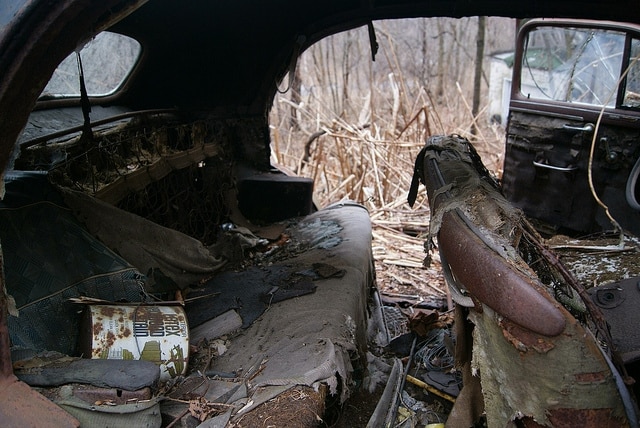
In 1984 the U.S. Congress allocated more than $42 million for relocation efforts and most of Centralia’s residents moved to nearby communities. In 1992 the Commonwealth of Pennsylvania claimed all of the properties in the borough and condemned them.
Despite this a handful of people remain in the eerily deserted town and are fighting attempts to evict them.
resident – lakos
to predict – előre jelezni, megjósolni
uninhabitable – lakhatatlan
due to – valaminek köszönhető
widespread – széles körű, kiterjed
downfall – hanyatlás
landfill – lerakó
mine pit – bánya akna
to ignite – meggyulladni, lángra kapni
sinkhole – lefolyólyuk, víznyelő
plume – füstfelhő
to billow – hullámozni, hömpölyögni
relocation – áttelepítés
to claim – igényelni
borough – város
to condemn – elítélni, ítélni
eerily – hátborzongatóan



